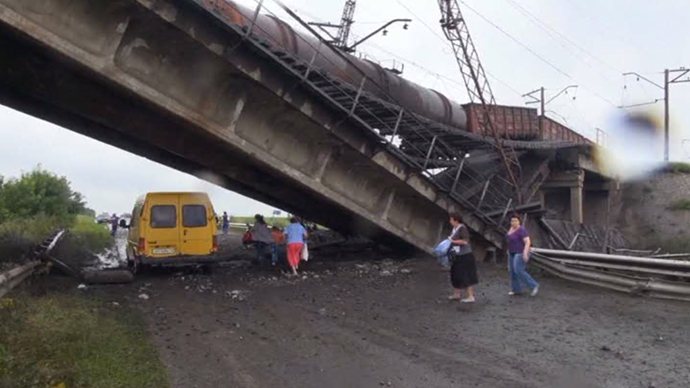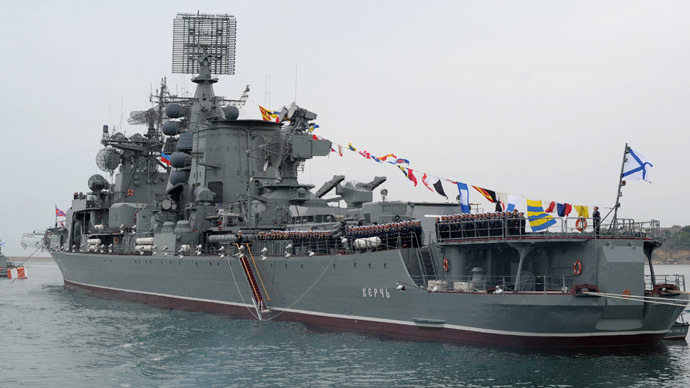Serbian prime minister starts visit to Russia
Source: B92, Tanjug
BELGRADE -- Serbian Prime Minister Aleksandar Vučić
will on Monday in Moscow meet with Russian Prime Minister Dmitry
Medvedev as part of his two-day working visit.
This has been announced on the website of the Russian government.
Vučić will also be received by President Vladimir Putin during his visit to Russia.
Topics of discussion will be bilateral cooperation, as well as all important international issues.
The South Stream gas pipeline will be one of the main topics, Serbian
and Russian analysts agree, while others include Ukraine, Serbia's OSCE
chairmanship, gas debt and gas supply, and joint ventures.
Serbia and Russia have an agreement on strategic partnership.
President Tomislav Nikolić said earlier he expected Vučić's upcoming
trip to Moscow to "benefit for Serbia," because, he said, Serbia was
"the link missing for East and West to cooperate better."
Asked
whether he expected Serbia's gas debt to be one of the topics, the
president responded that a solution was being sought for the debt to be
settled "in a reasonable time."
Labor Minister Aleksandar Vulin
also commented on the visit over the weekend to say that Russia is a
friendly country and our extraordinary partner, and therefore the prime
minister would not be given "any ultimatums" in Moscow.
"I
think it's great that the prime minister is meeting at the highest level
with European leaders, because it is necessary to confirm the
constructive position of Serbia, it is even an added value for Europe,
and not a hindrance. So in that sense, when you look at the map of
Europe, and you see where Serbia is, Serbia really needs to have good
economic relations with both Russia and Europe," Nikola Jovanović from
the Center for international Cooperation and Sustainable Development
told B92.
Another analyst, Dragoljub Anđelković, remarked:
"As long as Berlin maintains maximally good relations with Moscow and
seeks promotion of cooperation, even under the relations that we have
now, Serbia can pursue a balanced policy (of) both Berlin and Moscow -
that is, try to position itself between these two European, and on a
larger scale, powers. Things would be developing differently if by any
chance Berlin and Moscow got more distant, but something like that is
not currently in sight."
Interior Minister Nebojša Stefanović
was quoted as saying that Vučić was not going to Moscow "to be told
something, but to openly and objectively talk with the prime minister
and the president of Russia."
"It is in our interest to find
strategic partners for energy companies, to see what could be the price
of gas for us in the future, what can we do about South Stream and what
its future is,'' said Stefanović.
The most delicate issue,
according to analyst Dušan Janjić, will certainly be the Ukrainian
crisis and, in this light, Russia will seek from Serbia that when it
assumes chairmanship of the OSCE in 2015 - in favor of which Moscow
"very much lobbied" - it provides support for sending observers to the
separation lines, "which could lead to federalization, or the end of a
unitary Ukraine."
"Russia wants to a contact group to be with
OSCE, not the UN, because it learned a lesson: whenever the UN mediates
(Russia) is in the end left out and the separation troops on the ground
become NATO. Russia does not want NATO in Ukraine, or Ukraine in NATO,"
Janjić told Tanjug.
He estimates that the current prime
minister's biggest problem ahead of the trip to Moscow are huge debts,
"which brought him to a hopeless situation - on the one hand, the need
to implement serious reforms, on the other, the lack of money, and
thirdly, he is welcomed as someone who does not fulfill obligations."
Moscow positively assesses Serbia's support for South Stream, as well
as its position on Ukraine, where it was sufficient that Belgrade did
not introduce sanctions against Russia, and Moscow appreciates that,
Russian analyst Fyodor Lukyanov commented for Tanjug.
He said
that Russian President Putin "understands very well" that Serbia is in
"a fairly complex geographical and geopolitical situation."
''As a candidate for EU (membership) it is closely linked to the EU
economy and for that reason Belgrade will not, nor would it be fair to
ask it to, completely contradict European policies and openly oppose the
mainstream that exists in Europe," said Lukyanov.
Asked if he
expected pressure from Moscow on Belgrade regarding a higher level of
convergence with the Russian view on the crisis in Ukraine, he pointed
out that Serbia will not recognize Crimea as a part of the territory of
Russia, "because it cannot be done not by any criteria - not as a
country associated with the EU, nor as a country that has lost a part of
its territory as a result of intense use of force."
"What more
could Russia ask of Serbia," wondered Lukyanov, and pointed out that,
in his opinion, it was enough that Serbia did not join the sanctions,
"especially as neighboring Montenegro was not required to join the
sanctions and did it voluntarily."
Lukyanov, introduced as
editor-in-chief of reputable journal "Russia in Global Politics", added
he expected that Vučić's talks in Moscow would, beside South Stream,
focus on the gas price and Serbia's debt for consumed gas.
He
added that Russia was interested in retaining a very friendly and close
relations with Belgrade, but that it cannot be said that at the same
time Moscow has some special plans for Serbia, or that it wants to
remove it from Europe - "that is not and will not be."
Lukyanov
further said that he "does not understand those who think that Serbia
will in the future have to choose between the EU and good relations with
Russia."
He concluded that "those who claim that Serbia will
have to choose are most likely performing psychological pressure on
Belgrade in order to draw some concessions in negotiations - but nothing
more than that."
All the countries taking part in the South
Stream project have supported its construction, despite the opposition
from the EU, saying they found the pipeline to be of great economic and
vital interest.
Last week, Hungary, Bulgaria, Serbia and Italy
all supported South Stream, and Austria and Slovenia did the same
previously, expressing their commitment to the project which should
provide decades of security of gas supply to Southeast and Central
Europe.

















